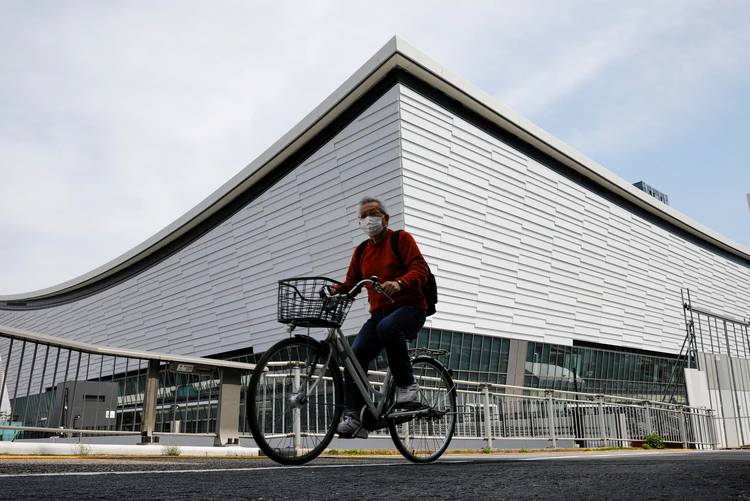The Japanese government may declare a new state of emergency for the cities of Tokyo and Osaka in response to another surge of COVID-19 infections.
The Mainichi newspaper reported Wednesday that Tokyo Governor Yuriko Koike is requesting to impose an emergency decree from April 29 to May 9, which coincides with Japan’s annual “Golden Week” public holiday period.
Tokyo and Osaka, along with several other prefectures, are already under a quasi-state of emergency, with restaurants and bars operating under shortened business hours. Japan as a whole has been under two separate emergency decrees since the start of the pandemic, the last one having just expired on March 21. The previous decrees stopped short of imposing a legally binding nationwide lockdown, due to Japan’s post-World War II constitution, which weighs heavily in favor of civil liberties.
The new state of emergency, if granted, would leave in place current restrictions on opening hours, and also lead to the closure of theme parks, shopping malls and other facilities. Osaka’s neighboring prefecture of Hyogo is also expected to be covered under the new emergency decree.
Japan has 542,467 confirmed COVID-19 cases, including 9,682 deaths, according to Johns Hopkins Coronavirus Resource Center. The numbers are moderate compared to other nations, but enough to overburden Japan’s healthcare sector and complicate plans for the Tokyo Olympic Games, which are scheduled to begin in July after a one-year delay due to the pandemic. The Japanese capital posted a record-high 843 confirmed new coronavirus cases on Wednesday.
Also complicating matters is the country’s sluggish vaccination drive, which got off to a slow start due to an acute shortage of vaccines.
More infections in India
The situation remains dire in India, which reported a single-day record 295,041 new COVID-19 infections on Wednesday, the seventh consecutive day the world’s second-most populous country has recorded more than 200,000 new cases.
The latest surge has led to a severe shortage of oxygen canisters, hospital beds and drugs across the nation, and prompted officials in the capital, New Delhi, to impose a week-long lockdown on Monday. Several large cities have reported COVID-19-linked burials and cremations that far exceed the official tally.
Johnson & Johnson resumes European rollout
On the vaccine front, Johnson & Johnson announced Tuesday it is resuming its European rollout of its one-dose vaccine after the European Medicines Agency, the drug regulator for the European Union, determined the drug’s benefits outweighs the risks of possible blood clots.
The EMA reviewed the Johnson & Johnson vaccine following a small number of reports from the United States of six women between the ages of 18 and 48 developed a rare but serious blood-clotting disorder associated with low levels of blood platelets following vaccination. One woman died and one was hospitalized in critical condition.
The agency concluded the drug’s product information should include a warning about the possible side effects, which should be listed as very rare.
In the U.S., the Centers for Disease Control and the Food and Drug Administration jointly called for a pause in the administration of the Johnson & Johnson vaccine last week in response to the six blood clotting cases.
The six women were among the 7 million Americans who have received the vaccine since its approval.
Dr. Anthony Fauci, the head of the National Institute of Allergy and Infectious Diseases, has said he expects an independent CDC advisory panel to lift the suspension when it meets again later this week.
(VOA)

